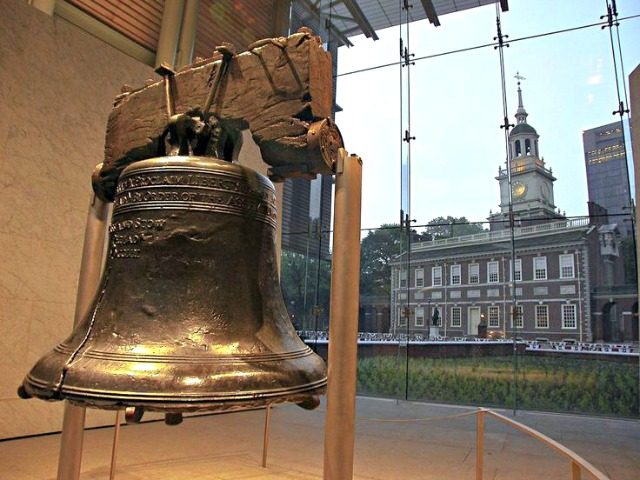Philly Fed Shock: Manufacturing Much Weaker Than Expected in June

0:56
Manufacturing conditions weakened in eastern Pennsylvania, southern New Jersey, and Delaware, the Philadelphia Federal Reserve Bank said on Thursday.
The Philly Fed’s survey of manufacturing businesses in the region showed that current activity declined to a reading just above zero in June. New orders, shipments, and employment remained positive but declined from their month earlier readings.
Economists had forecast the current activity index to fall to 11.0 from 16.0 in May, which would have been a continuation of solid growth. Instead, it fell to 0.3, a reading verging on contraction.
Most of the survey’s future activity indexes improved but continue to reflect muted optimism for the remainder of the year, the Philly Fed said.




Economist Who Predicted 2008 Economic Crisis Warns of 2020 Recession Risk

Economist Nouriel Roubini.
(Screenshot)
Economist Nouriel Roubini, who foresaw the 2008 world economic crisis, is now warning about the growing risk of a 2020 recession. In 2018, he had identified 10 potential downside risks with his colleague Brunello Rosa, risks that they believe could trigger a U.S. and global recession in 2020.
Roubini, co-founder of the economic forecasting team Rosa & Roubini Associates in London, was a senior economist for International Affairs in the White House's Council of Economic Advisers during the Clinton administration. He currently is a professor at NYU’s Stern School of Business and CEO of Roubini Macro Associates.
On Sept. 7, 2006, Roubini warned about the potential economic crisis of 2008 while speaking to an audience of economists at the International Monetary Fund. His forecast proved correct, as the 2007-2008 financial crisis severely hurt the U.S. and world economy.

(MARK RALSTON/AFP/Getty Images)
In 2018, Roubini and Rosa said there were 10 factors that could trigger a global recession in 2020. Many of the factors involve the United States.
In a recent commentary based on those factors, Roubini wrote, “Trade wars with China and other countries, along with restrictions on migration, foreign direct investment, and technology transfers, could have profound implications for global supply chains, raising the threat of stagflation (slowing growth alongside rising inflation).”
Prohibiting Chinese firms from using U.S. components could trigger a process of de-globalization, he said. “With the current tension already denting business, consumer, and investor confidence and slowing global growth, further escalation would trip the world into a recession,” said Roubini.
China’s reaction to President Trump’s tariff restrictions could also hurt some multi-national companies in China, such as America’s Apple.
“Both Trump and Chinese President Xi Jinping know that it is in their countries’ interest to avoid a global crisis, so they have an incentive to find a compromise in the next few months,” said Roubini. “Yet both sides are still ratcheting up nationalist rhetoric and pursuing tit-for-tat measures.”

(ARIANA DREHSLER/AFP/Getty Images.)
“Trump and Xi each seem to think that his country’s long-term economic and national security may depend on his not blinking in the face of a new cold war,” said the economist. “And if they each genuinely believe the other will blink first, the risk of a ruinous clash is high indeed.”
The other factors Roubini mentioned, in addition to the trade war, is China’s heavy debt and the U.S. Federal Reserve’s interest-rate policy.
In Europe and Japan, central banks are already in negative-rate territory, said Roubini, and it seems clear that they cannot go much further down without triggering economic problems.

(Getty Images.)
In September 2018, Roubini wrote, “Trump was already attacking the Fed when the growth rate was recently 4%. Just think about how he will behave in the 2020 election year, when growth likely will have fallen below 1% and job losses emerge. The temptation for Trump to ‘wag the dog’ by manufacturing a foreign-policy crisis will be high, especially if the Democrats retake the House of Representatives this year,” which they did.
“Since Trump has already started a trade war with China and wouldn’t dare attack nuclear-armed North Korea, his last best target would be Iran,” wrote Roubini. “By provoking a military confrontation with that country, he would trigger a stagflationary geopolitical shock not unlike the oil-price spikes of 1973, 1979, and 1990. Needless to say, that would make the oncoming global recession even more severe.”

No comments:
Post a Comment